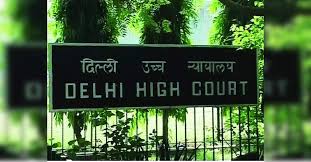
Delhi High Court Puts Tough Travel Conditions on Ashok Mittal to Prevent Another Mallya or Nirav Modi Escape
No Easy Exit: Delhi HC Allows Ashok Mittal Abroad but With Strict Safeguards Against Fugitive Flight
Ashok Mittal Case: Delhi HC Balances Liberty with Safeguards to Stop Economic Offenders from Fleeing
By Our Legal Reporter
New Delhi: November 10, 2025:
In a significant ruling, the Delhi High Court has permitted businessman Ashok Mittal to travel abroad under strict conditions, despite ongoing investigations into alleged undisclosed foreign assets worth hundreds of crores. The judgment, delivered by Justice Sachin Datta on May 30, 2025, highlights the delicate balance between the constitutional right to personal liberty under Article 21 and the government’s duty to investigate financial irregularities under the Income Tax Act, 1961 and the Black Money Act, 2015.
Please click here to read full judgement
The case has drawn national attention as it touches upon two critical issues: the fight against black money and the protection of fundamental rights.
Background of the Case
Also Read: Supreme Court Quashes Maharashtra’s 'Private Forest' Land Tags, Says Due Process Not Followed
- In July 2022, the Income Tax Department conducted search and seizure operations at Mittal’s properties.
- Officials claimed to have discovered undisclosed foreign assets in British Virgin Islands, Mauritius, Malaysia, and UAE, allegedly amounting to more than ₹450 crores.
- A Look Out Circular (LoC) was issued against Mittal to prevent him from leaving India.
- Mittal challenged the LoC, arguing that indefinite restrictions on his right to travel were arbitrary, unreasonable, and unconstitutional.
Also Read: Supreme Court Quashes Maharashtra’s 'Private Forest' Land Tags, Says Due Process Not Followed
Court’s Observations
The Court referred to earlier landmark judgments, including Maneka Gandhi v. Union of India (1978) and Satwant Singh Sawhney v. D. Ramarathnam (1967), which established that the right to travel abroad is part of the right to life and personal liberty under Article 21.
- LoCs are preventive measures, but they must be justified by credible material.
- Restrictions cannot be indefinite or arbitrary.
- The State’s interest in investigating black money must be balanced with the individual’s liberty.
Also Read: Gauhati High Court Upholds Tribunal Order Declaring Woman Illegal Migrant from Bangladesh
Conditions Imposed by the Court
The Court allowed Mittal to travel abroad, subject to stringent safeguards:
Also Read: Gauhati High Court Upholds Tribunal Order Declaring Woman Illegal Migrant from Bangladesh
- Deposit of ₹1 crore security in the form of a Fixed Deposit Receipt (FDR).
- Disclosure of all movable and immovable assets in India, including those jointly owned.
- Submission of title documents of properties.
- Disclosure of foreign assets and bank accounts, along with supporting documents.
- Deposit of family members’ passports as additional security.
- Filing of a detailed travel itinerary, including addresses and contact numbers abroad.
- Undertaking to return by July 10, 2025.
Also Read: Madras High Court Upholds SARFAESI Auctions: Property Valuation Must Be Done by Registered Valuers
Also Read: Madras High Court Upholds SARFAESI Auctions: Property Valuation Must Be Done by Registered Valuers
Violation of these conditions would result in forfeiture of assets and contempt of court.
Significance of the Ruling
- Reaffirms Article 21: The Court reiterated that personal liberty cannot be curtailed without due process.
- Sets precedent on LoCs: It clarified that LoCs must be proportionate and supported by evidence.
- Balances liberty with accountability: The ruling ensures that individuals under investigation cannot misuse their freedom, while also preventing arbitrary restrictions.
Also Read: ITAT Kolkata Rules: Gifts from Brother-in-Law Are Tax-Free Under Income Tax Act
Expert Reactions
Also Read: ITAT Kolkata Rules: Gifts from Brother-in-Law Are Tax-Free Under Income Tax Act
- Senior Advocate Jayant Bhushan, representing Mittal, argued that indefinite restrictions violate constitutional rights.
- Tax law specialists noted that the judgment strengthens judicial oversight over executive actions like LoCs.
- Civil rights activists welcomed the emphasis on proportionality, saying it protects citizens from excessive state power.
Broader Implications
Also Read: Supreme Court Rules: Tenant Cannot Challenge Landlord’s Ownership After Signing Rent Deed
Also Read: Supreme Court Rules: Tenant Cannot Challenge Landlord’s Ownership After Signing Rent Deed
- For Individuals: Reinforces that citizens cannot be denied their right to travel abroad without strong justification.
- For Government Agencies: Encourages transparency and accountability in issuing LoCs.
- For Judiciary: Demonstrates the courts’ role in balancing liberty with national interest.
Historical Context
Also Read: How Indians Can Start a Company in the USA: Step-by-Step Guide, Costs, and Legal Requirements
- Maneka Gandhi v. Union of India (1978) – established that restrictions on liberty must be fair and reasonable.
- Satwant Singh Sawhney v. D. Ramarathnam (1967) – recognized the right to travel abroad as part of personal liberty.
- Atul Punj v. Union of India (2025) – Delhi HC held that inability to repay loans cannot justify curtailing travel rights.
Also Read: How Indians Can Start a Company in the USA: Step-by-Step Guide, Costs, and Legal Requirements
Conclusion
The Ashok Mittal vs Union of India case is a landmark in balancing individual freedom and state authority. By allowing conditional foreign travel, the Delhi High Court has reaffirmed that judicial discipline and constitutional safeguards remain central to India’s democracy.
The ruling sends a strong message: while the fight against black money is vital, it cannot come at the cost of fundamental rights.
🔑 Suggested Keywords for SEO & Faster Searches
- Ashok Mittal vs Union of India case
- Delhi High Court Look Out Circular judgment
- Article 21 right to travel abroad India
- Black Money Act 2015 Delhi HC ruling
- Income Tax Act Section 132 search case
- Conditional foreign travel court order India
- Justice Sachin Datta Delhi High Court ruling
- Fundamental rights vs black money investigations
- Indian judiciary personal liberty cases
- Delhi HC Ashok Mittal judgment 2025